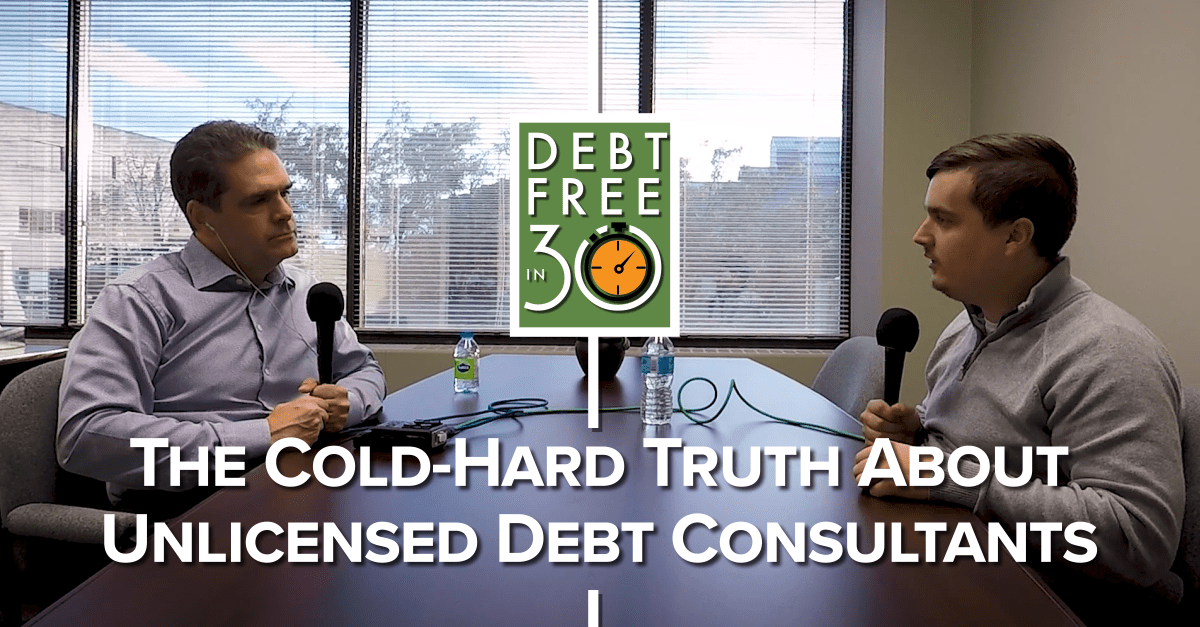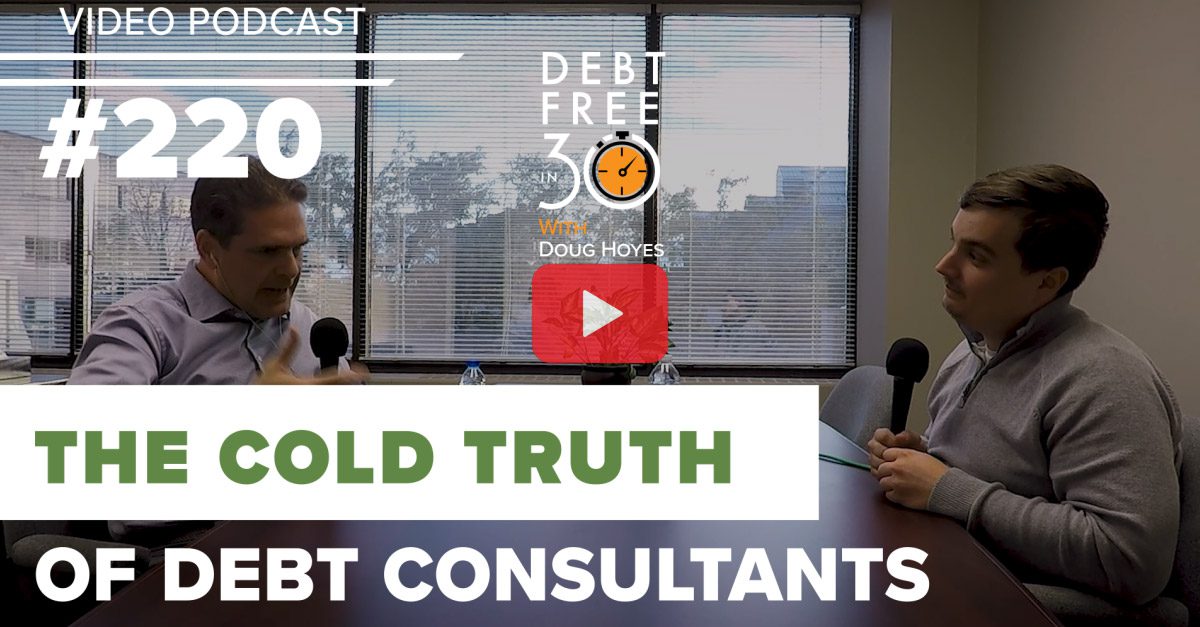
If you’re struggling with debt, finding the right help can be crucial to getting your finances back on track. However, not all debt consultants in Canada are created equal. This guide will help you navigate the complex world of debt consultation services and ensure you work with a legitimate professional who can truly assist you.
Table of Contents
Understanding Debt Advisory Services in Canada
In Canada, there are several types of debt advisors, each with different qualifications and services:
-
Licensed Insolvency Trustees (LITs)
-
Credit Counsellors
-
Debt Consultants
Licensed Insolvency Trustees (LITs)
Licensed Insolvency Trustees are the only professionals licensed by the Government of Canada to administer personal bankruptcies and consumer proposals. However, trustees don’t just offer these debt solutions. As government-regulated credit counsellors, an LIT must explain all debt relief options so you can choose the best way out of debt for your circumstances.
LITs are heavily regulated and monitored by the Office of the Superintendent of Bankruptcy (OSB). They must complete extensive training and pass several exams before being licensed. Once licensed, they are required to adhere to a strict code of ethics and professional conduct, with regular monitoring by the OSB to ensure compliance with regulations. There is a registry that lists all LIT’s in Canada.
Fees charged by LITs are also regulated by the federal government. They cannot charge upfront fees for their services. Fees are included in consumer proposal payments. Bankruptcy fees are also set by the government and paid from the bankruptcy estate. This fee structure ensures transparency and fairness for individuals seeking debt relief.
Credit Counsellors
Credit counselling services, often provided by non-profit agencies, offer financial literacy and can help you develop better money management skills. They provide financial education around budgeting, setting financial goals and using credit wisely.
Credit counselling agencies offer debt management plans, consolidating unsecured debts into a single monthly payment. Through a debt management plan, credit counsellors set up a repayment plan and may be able to negotiate with creditors to reduce or waive interest charges on debts. Credit counsellors cannot settle your debts for less than you owe.
Unlike LITs, credit counsellors are not federally regulated. They are self-regulated through several voluntary accreditation organizations, including:
- Credit Counselling Canada (CCC): A national association of non-profit credit counselling agencies. Members must adhere to a strict code of ethics and standards of practice.
- Ontario Association of Credit Counselling Services (OACCS): This provincial association accredits credit counselling agencies in Ontario.
- Canadian Association of Credit Counselling Services (CACCS): Another national organization that provides accreditation for credit counselling agencies.
Membership in these organizations is voluntary, so not all credit counselling agencies are members. When considering a credit counsellor, check if they’re accredited by one of these organizations.
Their funding model often includes support from creditors, which can potentially create conflicts of interest. While initial consultations are free, they may charge fees for debt management plans, which can add an additional 10-15% to the debts repayable in the program.
Debt Consultants
What does a debt consultant do?
Generally, debt consultants act as middle-men between the debtor and a Licensed Insolvency Trustee. They charge a fee for their referral and can exist because their practice isn’t illegal in Canada. They market themselves using warm language to prey on emotional debtors. You do not need to pay for a referral to a Licensed Insolvency Trustee, as all LITs provide consultation services for free.
Debt consultants are not regulated and have no specific licensing or educational requirements. In most cases, you speak with a trained salesperson, not a trained debt professional.
The fee structure of debt consultants can vary widely and is not regulated. Many charge substantial upfront fees, as well as monthly fees for ongoing services. In many cases, the fees charged are for gathering information and preparing paperwork – tasks that Licensed Insolvency Trustees typically include as part of their regulated services at no additional cost.
Indebted Canadians pay at least $24 million a year for what is often unnecessary debt advice. How does this happen? Well, when you have overwhelming debt, you’re not just thinking about the money. There’s also an emotional element: You’re stressed, anxious, and worried about your future. Enter unlicensed debt consultants. They know that you fear going bankrupt or even talking with a bankruptcy trustee. They take advantage of your vulnerability and offer a comforting sales pitch about how they can get you a better plan to eliminate your debt.
In the end, they do nothing except refer you to a Licensed Insolvency Trustee for a consumer proposal. But before they do, they also have you sign a contract to pay them thousands of dollars in fees for that referral. On a Debt Free in 30 podcast, we got some insight from a special guest who experienced this exact scenario. He explains how debt consultants work, and Doug Hoyes, Licensed Insolvency Trustee explores how you can avoid falling into this same trap.

Does Canada Have a Debt Forgiveness Program?
The only government debt relief program is a consumer proposal, which can only be administered by a Licensed Insolvency Trustee. There is no reason to work with an intermediary, and in fact, this can increase the cost of a proposal unnecessarily.
The Office of the Superintendent of Bankruptcy has issued a report warning against the involvement of debt consultants in the consumer proposal process. They noted that:
“Debtors served by LITs who had ongoing relationships with debt consultants usually ended up paying thousands of dollars more for the administration of their insolvency” than debtors who worked directly with an LIT.
It is best to consult with a Licensed Insolvency Trustee for advice on debt settlement or a consumer proposal. They can provide this service without additional fees and with greater regulatory oversight.
Red Flags to Watch Out For
We often hear that debtors are afraid to seek help from a Licensed Insolvency Trustee because of the stereotypes and misconceptions about the debt relief process. Debt consultant companies feed off this fear. They have two common sales tactics: they promote a
When seeking debt help, be wary of the following warning signs:
-
Upfront fees: Legitimate LITs do not charge upfront fees.
-
Pressure to sign up quickly: Reputable professionals will give you time to consider your options.
-
Requirements to sign a contract with a fee or payment structure before meeting with an LIT and before your proposal is officially filed with the federal government.
-
Lack of clear information about their qualifications or licensing.
-
Claims of a “special government program” that only they can access.
Choosing an unlicensed debt consultant can have serious consequences. You may end up paying unnecessary fees. They may not have the expertise to provide the services they are promoting. You could miss out on legal protections offered by formal insolvency proceedings. Finally, your financial situation could worsen if you’re given poor advice or if negotiations with creditors fall through.
If you feel you were misled by a debt consultant, you can contact OSB with a complaint regarding debt consultants.
How to Verify Your Debt Counsellor’s Credentials
Before working with any debt professional, take these steps to verify their credentials:
-
For LITs, check the Office of the Superintendent of Bankruptcy’s official list of Licensed Insolvency Trustees.
-
Look for membership in professional associations like Credit Counselling Canada or the Canadian Association of Insolvency and Restructuring Professionals (CAIRP).
-
Check with your provincial or territorial consumer protection office or the Better Business Bureau for complaints or actions against the individual or company.
-
Verify they have some physical locations that serve clients. Although all professionals now offer debt help services by phone and video-conferencing, be cautious of companies that only operate online or via phone.
-
While Google and review sites are helpful, be sure these are legitimate. It is easy to create questionable reviews on third-party trust and review sites.
We are Licensed Insolvency Trustees
Questions to Ask When Interviewing a Potential Debt Consultant
When meeting with a debt professional, ask the following questions:
-
What are your qualifications and licensing?
-
Are you a Licensed Insolvency Trustee?
-
What range of debt solutions can you offer? Are you licensed to file proposals with the government?
-
How are your fees structured? Are there any upfront costs?
-
What is the legal process that wills top creditors from contacting me?
-
Can you legally stop a wage garnishment immediately?
Comparing Debt Relief Options
In addition to choosing the right debt help professionals,
it’s also important to understand the different debt solutions available in Canada. Each option has its own advantages and considerations, and the best choice depends on your specific financial situation. Let’s explore the main debt relief options:
Debt Consolidation
Debt consolidation involves combining multiple debts into a single loan, often with a lower overall interest rate. This can simplify your finances by reducing the number of payments you need to make each month. Typically, you’ll need a reasonably good credit score to qualify for a debt consolidation loan.
The main advantage of debt consolidation is potentially lower interest rates, which can save you money over time and help you pay off your debt faster. However, it’s important to note that debt consolidation doesn’t reduce the principal amount you owe. It’s most effective when combined with budgeting and lifestyle changes to prevent future debt accumulation.
Consumer Proposals
A consumer proposal is a formal, legally binding process administered by a Licensed Insolvency Trustee. It’s an agreement between you and your creditors to repay a portion of your debts. Consumer proposals can reduce the amount you owe by up to 80%, making them an attractive option for many individuals struggling with significant debt.
One of the key benefits of a consumer proposal is that it stops all interest on your debts and allows you to get out of debt with a single affordable monthly payment. It also provides legal protection from creditors, putting an end to collection calls and legal actions. While a consumer proposal will affect your credit score, the impact is generally less severe than bankruptcy.
Read more: consumer proposal vs debt consolidation
Bankruptcy
Bankruptcy is a legal process that eliminates most unsecured debts, providing a fresh financial start. It’s typically considered a last resort when other debt relief options are not feasible. Only Licensed Insolvency Trustees can administer bankruptcies in Canada.
The primary advantage of bankruptcy is the elimination of most debts, providing immediate relief from financial stress. However, it has the most severe impact on your credit score and can affect your ability to obtain credit in the future. Bankruptcy also involves surrendering certain assets, although there are exemptions that vary by province.
Read more: bankruptcy vs consumer proposal
Credit Counselling and Debt Management Plans
In a debt management plan, a credit counselling agency may negotiate with your creditors to reduce or waive interest charges. While this doesn’t reduce the principal amount you owe, it can make your debts more manageable and help you pay them off faster. Credit counselling and debt management plans have the same impact on your credit report as a consumer proposal but less than bankruptcy.
Read more: debt management plan vs consumer proposal
How Hoyes, Michalos Can Help You Find the Right Debt Solution
If you’re struggling with debt and looking for professional, trustworthy advice, Hoyes, Michalos & Associates Inc. is here to help. As Licensed Insolvency Trustees with over 20 years of experience, we’ve assisted thousands of Canadians with overwhelming credit card debt, payday loans, tax debts, bank loans, and other debt problems. We can help you find the right debt relief solution for your unique situation.
Don’t let debt stress control your life any longer. Contact us today to schedule your free consultation and take the first step towards financial freedom. Remember, the sooner you seek help, the more options you’ll have available. Let us help you start your journey to a brighter financial future.





